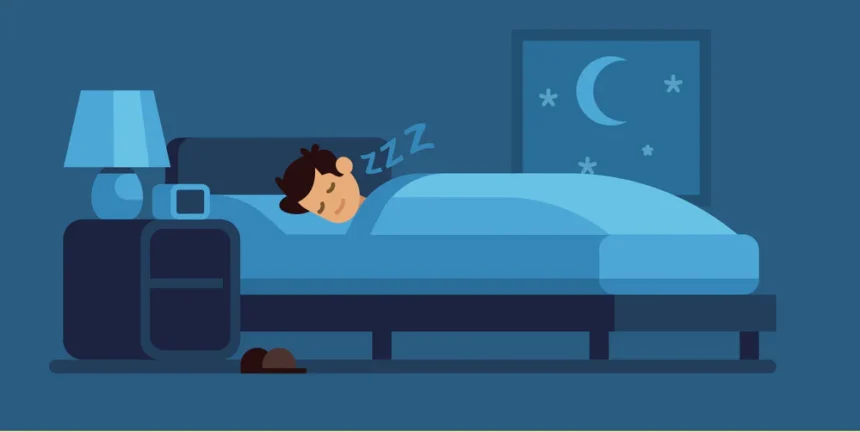The environment in which you sleep has a significant effect on the quality of your rest. Everything from your bedding to lighting, temperature, and even noise levels can affect how well you sleep. Creating the best and most helpful sleep environment is necessary for good physical and mental health. Here, we look at six ways your environment influences your sleep and provide tips on how to make improvements for better rest.
Cozy Bedding, Like Quilts, Can Improve Sleep
One of the most important factors in creating a comfortable sleep environment is incorporating cozy bedding like quilts. The right bedding can make all the difference in how well you sleep. Soft, breathable materials like cotton or linen help regulate body temperature, which keeps you cool in the summer and warm in the winter. Quilts, in particular, offer both comfort and aesthetic appeal, creating a cozy, inviting space for rest. Cozy bedding, such as quilts, plays a critical role in ensuring a restful night’s sleep by providing warmth without causing overheating. Investing in more high-quality bedding is one of the simplest ways to improve your sleep environment.
CBD Sleep Products Can Help You Relax Before Bed
Many people have a hard time falling asleep or staying asleep, and CBD sleep products can be a useful addition to your nighttime routine. CBD, or cannabidiol, has been shown to help people have less anxiety and promote more relaxation, making it easier to unwind at the end of the day. Products such as CBD-infused oils, gummies, or capsules are designed to help calm the mind and prepare the body for restful sleep. These sleep products offer natural support for those dealing with sleep disorders, helping them relax and enjoy deeper, more restorative sleep. While not a solution for everyone, CBD can be a helpful tool for some to better manage sleep issues as part of a comprehensive approach to sleep hygiene.
Lighting Affects Your Sleep Patterns
Did you know that different shades of light play a prominent role in regulating your body’s circadian rhythm? This is also known as the circadian rhythm. Artificial lighting, particularly blue light from screens, can interfere with the body’s natural ability to produce melatonin, which is the hormone responsible for making you feel sleepy.
Exposure to bright lights before bed tricks your brain into thinking it’s still daytime, making it harder to fall asleep. Dimming your lights in the evening and avoiding screens, including phones and TVs at least an hour before bedtime can tell your body that it’s time to wind down. Using soft, warm lighting in your bedroom creates a more relaxing environment conducive to sleep.
Noise Levels Impact Sleep Quality
Noise is another important environmental factor that can significantly impact sleep quality. While some people can sleep through anything, others are easily disturbed by even minor sounds. Noise disruptions can cause you to wake up frequently throughout the night, preventing you from entering into the deeper stages of sleep that are necessary for feeling rested.
Investing in soundproofing solutions like heavy curtains, rugs, or white noise machines can even help you block out external sounds and help you create a quieter sleep environment. For those sensitive to noise, creating a tranquil, peaceful space is key to achieving uninterrupted rest.
The Importance of Room Temperature for Restful Sleep
Room temperature is one of the most important yet often overlooked aspects of a good sleep environment. Research shows that cooler temperatures, typically between 60 and 67 degrees Fahrenheit, are ideal for sleep. When your bedroom is too hot, your body has difficulty cooling down, leading to restless sleep and frequent waking.
On the other hand, if it’s too cold, you may find yourself shivering or uncomfortable throughout the night. Adjusting your thermostat or using fans, air conditioners, or extra blankets can help you find the perfect balance for a restful night.
How a Clutter-Free Bedroom Can Lead to Better Sleep
The organization of your bedroom can have a surprising impact on your ability to relax and sleep well. A clutter-free bedroom helps create a sense of calm and order, making it easier to unwind. Studies suggest that cluttered environments can increase stress and anxiety, both of which are known to interfere with sleep. By keeping your space tidy and organized, you create a peaceful environment where your mind can relax. Simple changes like minimizing clutter on surfaces, keeping clothes off the floor, and maintaining an organized space can contribute to better sleep quality.
The space where you sleep plays a vital role in determining how well you rest. From incorporating cozy bedding like quilts to optimizing lighting, noise levels, room temperature, and organization, small adjustments can make a big difference in how well you sleep. By creating a space that promotes relaxation and comfort, you can improve your sleep and, in turn, enhance your overall health and well-being.






